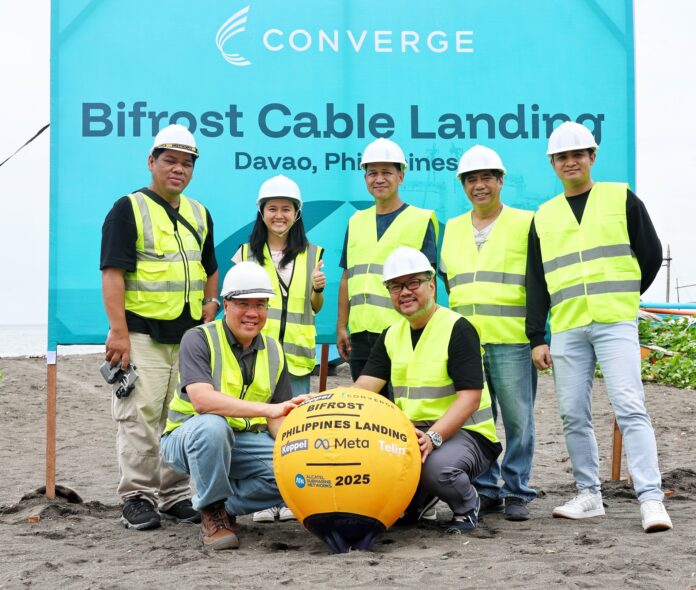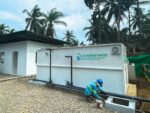Converge ICT Solutions Inc. announced the successful landing of the trans-Pacific Bifrost Cable System in Davao, a key milestone in positioning the Philippines as a major hub in the global digital infrastructure map.
The landing marks the entry of the first new trans-Pacific subsea cable system in over 20 years to traverse a unique route connecting the U.S. (California and Oregon) with Guam, Indonesia, Singapore, and the Philippines. The system enables ultra-low latency, high-capacity data transmission, vital for accelerating digital services, cloud access, and cross-border trade.
As the exclusive Philippine partner and operator of the Davao International Cable Landing Station (ICLS)—where the Bifrost Philippine branch terminates—Converge now gains direct access to one of the world’s most advanced subsea cable systems. The ICLS turns Mindanao into a strategic telecom corridor, unlocking opportunities for data centers, hyperscalers, and international business expansion.
“This milestone is more than a technological achievement—it’s a national enabler,” said Dennis Anthony Uy, CEO and co-founder of Converge. “We are enabling secure, high-capacity, cross-border data flows that will drive global trade and power innovation.”
Converge expects strong commercial uptake for Bifrost capacity, with high demand from carriers and ISPs already materializing. The 20,000-km cable strengthens the Philippines’ global connectivity, boosting network resilience and benefiting end users with faster, more reliable, and future-ready broadband services.
As the digital economy accelerates, the Bifrost system enhances the Philippines’ role as a critical digital gateway in the Asia-Pacific region.







